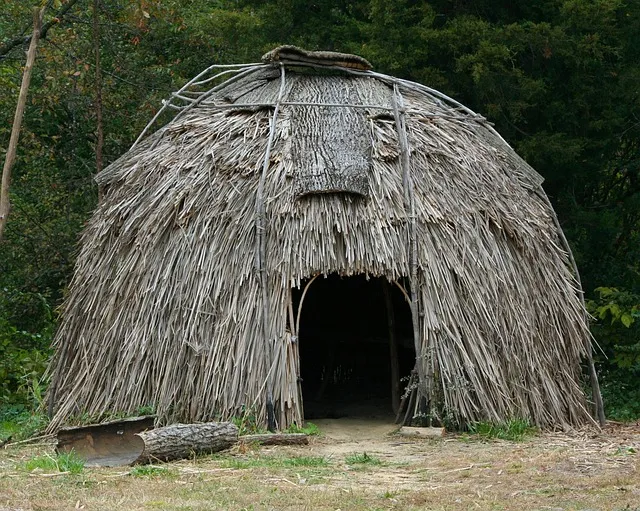Depression Treatment in VA: Therapies, Counselors, and Community Support

Depression is a severe mental health condition characterized by persistent sadness, loss of interest…….
In the realm of healthcare and community development, the concept of a Virginia Village Kaiser Counselor has emerged as a transformative force, offering tailored support and resources to individuals seeking guidance and empowerment. This comprehensive article aims to delve into the multifaceted world of this counseling approach, exploring its origins, impact, and potential. By examining various aspects, from historical context to global reach and future prospects, we will uncover the profound role it plays in enhancing individual well-being and fostering resilient communities.
Virginia Village Kaiser Counselor (VKC) is a therapeutic framework designed to address the multifaceted needs of individuals within their community setting. It emphasizes a holistic approach, recognizing the interconnectedness of physical, mental, and social well-being. The core components include:
The origins of VKC can be traced back to the late 20th century when healthcare professionals recognized the limitations of traditional counseling settings in addressing complex social issues. This approach emerged as a response to the growing need for accessible, community-based support, especially in urban areas with diverse populations. Over time, VKC has evolved and gained recognition for its effectiveness in various cultural contexts.
VKC is significant because it shifts the focus from individual therapy to community empowerment. By embedding counselors within vibrant communities, it aims to:
Virginia Village Kaiser Counselor has gained international recognition and adoption, with variations adapted to suit diverse cultural and social contexts:
| Region | Adaptations | Key Achievements |
|---|---|---|
| North America | Emphasizing community partnerships and integrating technology for remote access. | Increased accessibility to counseling services, especially in rural areas. |
| Europe | Focusing on multicultural sensitivity and collaboration with local NGOs. | Successful integration of VKC into existing healthcare systems, improving outcomes for diverse populations. |
| Asia-Pacific | Incorporating traditional healing practices and community-based support networks. | Enhanced cultural acceptance and improved mental health literacy across communities. |
| Africa | Adapting to resource-limited settings, utilizing peer counselors, and mobile counseling services. | Increased reach and impact in underserved regions, leading to better community resilience. |
Several global trends are influencing the development and impact of VKC:
The economic landscape surrounding VKC is dynamic and multifaceted:
Investors are drawn to VKC’s potential to:
Technology plays a pivotal role in enhancing the reach and effectiveness of VKC:
While technology offers immense potential, challenges include ensuring digital literacy among clients, maintaining data privacy, and addressing the need for human connection in therapy. Overcoming these hurdles will be crucial for the future success of VKC.
Key policies and regulations shape the landscape of VKC:
These policies impact VKC in several ways:
VKC, like any approach, faces challenges and criticisms:
Proposed solutions include:
The following case studies highlight successful VKC programs and their impact:
Case Study 1: Urban Youth Initiative (New York, USA)
This program focuses on at-risk youth in a bustling urban environment. By partnering with schools, community centers, and local artists, they offer after-school counseling sessions, art therapy, and community events. The initiative has led to improved academic performance, reduced behavioral issues, and enhanced social connections among participants.
Case Study 2: Rural Healing Circle (Western Australia)
In a remote rural region, the healing circle brings together local Aboriginal communities for cultural counseling sessions. This approach respects traditional healing practices and promotes community resilience. The program has fostered a sense of belonging, improved mental health outcomes, and enhanced intergenerational connections.
Case Study 3: Digital Wellness Village (Tokyo, Japan)
This innovative VKC initiative utilizes digital platforms to create a virtual wellness village. It offers personalized counseling sessions, online support groups, and digital mindfulness tools for busy professionals. The program has seen success in reducing stress levels and improving work-life balance among participants.
The future of VKC holds exciting possibilities:
The Virginia Village Kaiser Counselor approach represents a significant advancement in community-based mental health support, offering hope and empowerment to individuals worldwide. Its holistic nature, adaptability, and emphasis on community engagement make it a powerful tool for enhancing well-being. As we navigate the future, the potential of VKC continues to grow, shaping a brighter and more resilient global landscape.
Q: How does VKC differ from traditional counseling?
A: VKC takes a community-centric approach, focusing on building support networks and empowering individuals within their social contexts. Traditional counseling often occurs in private settings with a primary focus on individual therapy.
Q: Can VKC be effective in rural areas with limited resources?
A: Absolutely! Through creative use of technology, partnerships, and trained peer counselors, VKC can reach even the most remote communities, providing accessible and culturally sensitive support.
Q: What role does culture play in VKC implementation?
A: Culture is a cornerstone of VKC. Adapting practices to respect cultural norms and collaborating with local communities ensures acceptance and effectiveness. Cultural sensitivity training for counselors is essential.
Q: How can we ensure the sustainability of VKC programs?
A: Sustainability requires a multi-pronged approach, including community involvement, diverse funding sources, robust evaluation, and continuous improvement based on local needs and feedback.
Q: Can technology ever replace human connection in therapy?
A: While technology enhances access, it cannot fully replicate human connection. VKC emphasizes a balanced approach, utilizing digital tools while ensuring personal interaction whenever possible.

Depression is a severe mental health condition characterized by persistent sadness, loss of interest…….

The Virginia Village Kaiser Counselors provide specialized mental health support in a tranquil setti…….